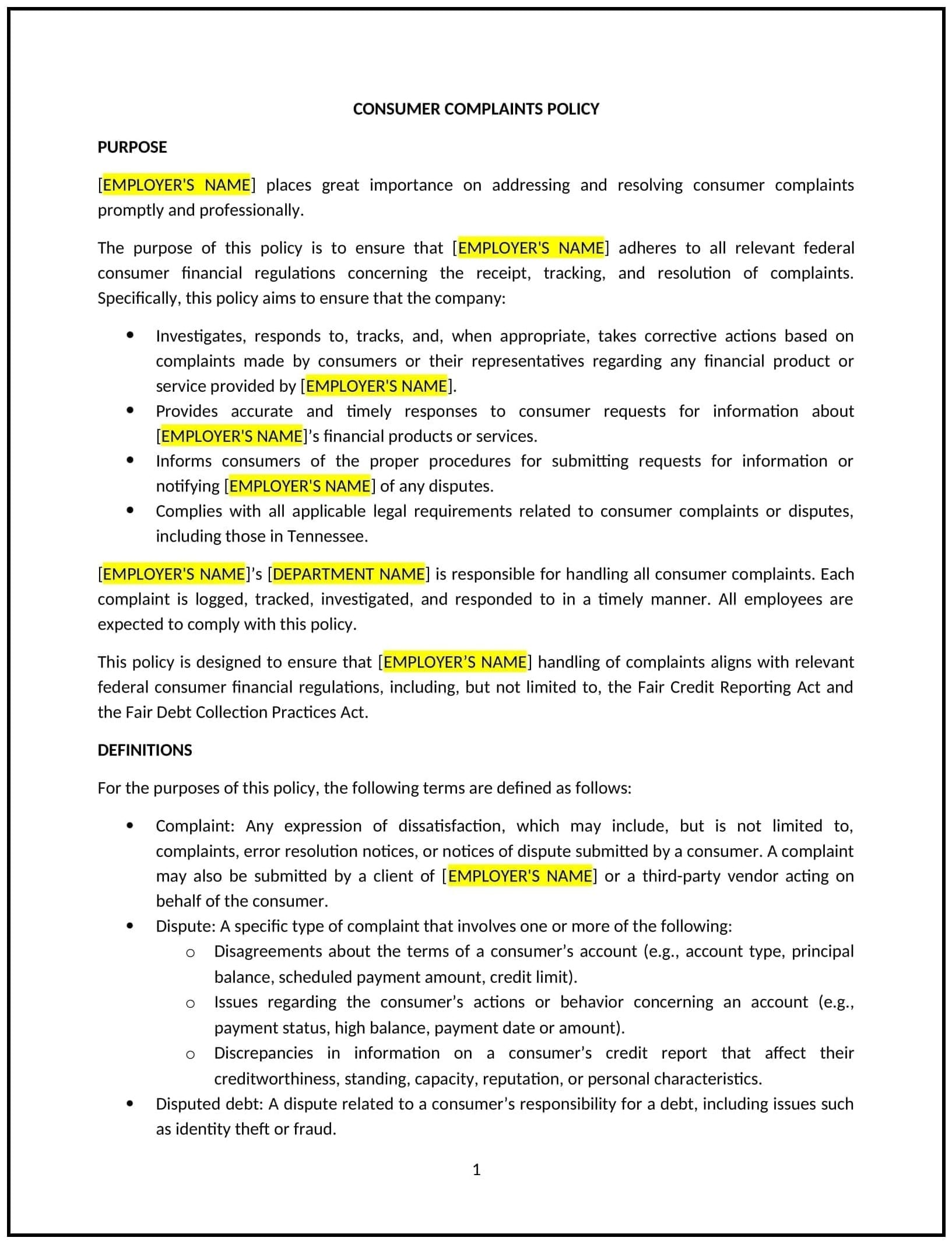Consumer complaints policy (Tennessee): Free template
Got contracts to review? While you're here for policies, let Cobrief make contract review effortless—start your free review now.

Customize this template for free
Consumer complaints policy (Tennessee)
This consumer complaints policy is designed to help Tennessee businesses establish guidelines for addressing and resolving customer complaints effectively. It outlines procedures for receiving, documenting, and resolving complaints to ensure customer satisfaction and maintain the business’s reputation.
By adopting this policy, businesses can enhance customer trust, reduce negative feedback, and align with best practices for customer service.
How to use this consumer complaints policy (Tennessee)
- Define complaint channels: Specify how customers can submit complaints, such as via email, phone, or online forms.
- Set response timelines: Establish deadlines for acknowledging and resolving complaints, such as 24 hours for acknowledgment and 5 business days for resolution.
- Train employees: Educate staff on handling complaints professionally and empathetically.
- Document complaints: Maintain detailed records of complaints and resolutions for future reference and analysis.
- Address recurring issues: Identify patterns in complaints and take corrective action to prevent future issues.
- Review and update: Assess the policy annually to ensure it aligns with evolving customer expectations and business needs.
Benefits of using this consumer complaints policy (Tennessee)
This policy offers several advantages for Tennessee businesses:
- Enhances customer satisfaction: Demonstrates a commitment to addressing customer concerns promptly and effectively.
- Builds trust and loyalty: Shows customers that their feedback is valued and taken seriously.
- Reduces negative feedback: Helps resolve issues before they escalate into public complaints or reviews.
- Improves operational efficiency: Provides a structured approach to managing and resolving complaints.
- Aligns with best practices: Supports a customer-focused approach to business operations.
Tips for using this consumer complaints policy (Tennessee)
- Communicate the policy: Share the policy with employees and include it in the employee handbook.
- Provide training: Educate managers and staff on handling complaints professionally and empathetically.
- Monitor compliance: Regularly review complaint resolution timelines and customer feedback.
- Address issues promptly: Take corrective action if complaints are mishandled or unresolved.
- Update regularly: Assess the policy annually to ensure it aligns with evolving customer expectations and business needs.